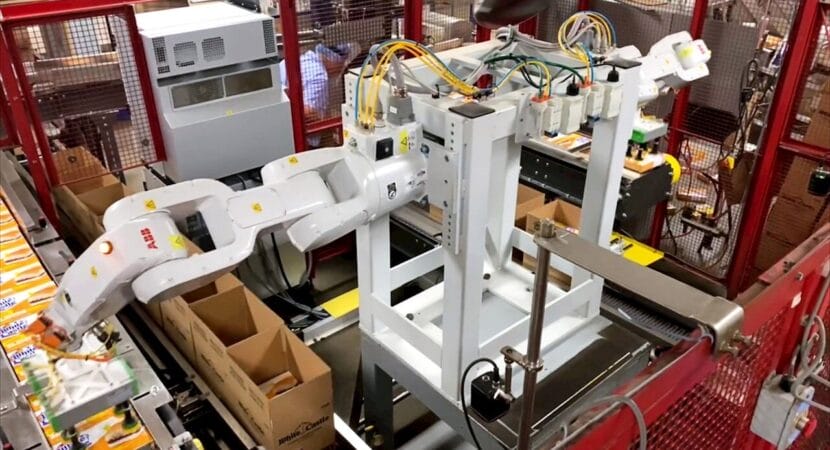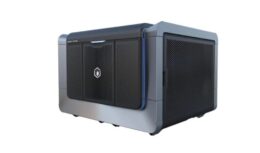
Streamlining packaging and palletizing in the food sector
The food industry constantly faces challenges in optimizing its operations, especially in tasks such as packaging and palletizing. A renowned frozen burger manufacturer in the United States has discovered the perfect solution to these challenges with the help of robots from ABB, a leading automation technology company. The objective was to speed up the burger packaging and palletizing process, while minimizing the risk of injury to workers and improving process automation.
Innovation in the Production process
The company, originally from a fast-food chain and now focused on selling its famous frozen mini-burgers, or “sliders”, needed a solution to deal with increased demand. At its plant in Louisville, Kentucky, production begins with the arrival of blocks of meat, which are formed into individual burgers and assembled by hand with bread, onions and cheese. After packaging, the products are sent to an ultra-fast freezer, before being distributed to stores across the country.
Robotics improving efficiency
The installation of ABB robots at the factory was a milestone in the company's history. The IRB 340 FlexPicker® and IRB 360 models, equipped with advanced technologies, were essential in overcoming bottlenecks in packaging mini-burgers. These robots, operating for more than two decades, were described by factory manager Tony McGraw as the “best investment ever made”, highlighting their speed, precision and reliability.
Continuous evolution with ABB technology
Later, to address the obsolescence of the original robots, White Castle hired CIM SYSTEMS INC., an ABB-authorized robotic systems integrator, to find replacement solutions. CIM used RobotStudio®, an offline programming software from ABB, to design the palletizing cell. This innovative system involved the use of an IRB 660 palletizing robot, capable of handling 180 kilos and with a reach of 3,15 meters, ideal for the factory's palletizing operations.
New IRB 1200 robots were installed to pack retail boxes, further optimizing the process. These robots, more efficient and with advanced capabilities, replaced a previous model, allowing workers to focus on more strategic tasks. CIM again turned to RobotStudio to ensure optimal positioning and performance of robots on the production line.
The use of these ABB robots has not only accelerated production, but also significantly contributed to worker safety by reducing the need for manual handling of frozen products and increasing overall efficiency. This success story in the food industry illustrates how robotics and automation can be transformative, especially in sectors where demand and the need for efficiency are constantly increasing.
Conclusion: The future of automation in the food industry
White Castle's journey with ABB robots highlights the importance of continuous innovation in the food industry. Strategic use of advanced robotics and programming tools like RobotStudio® demonstrates a proactive approach to solving production challenges and improving operational efficiency. With these technologies, the company not only optimized its production, but also ensured a safer and more efficient work environment for its employees, paving the way for future innovations in the sector.
Source: Tamer Comunicação










